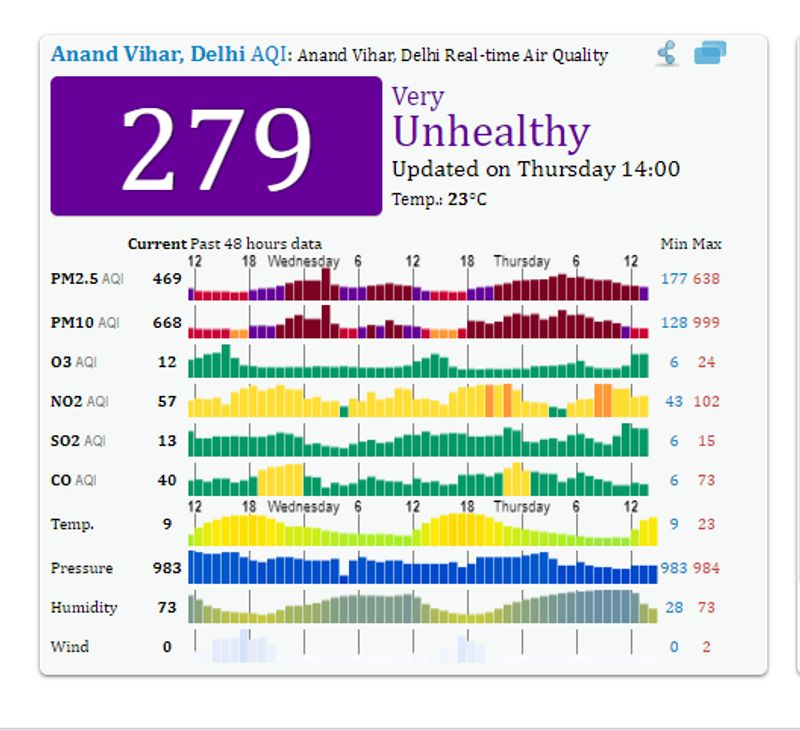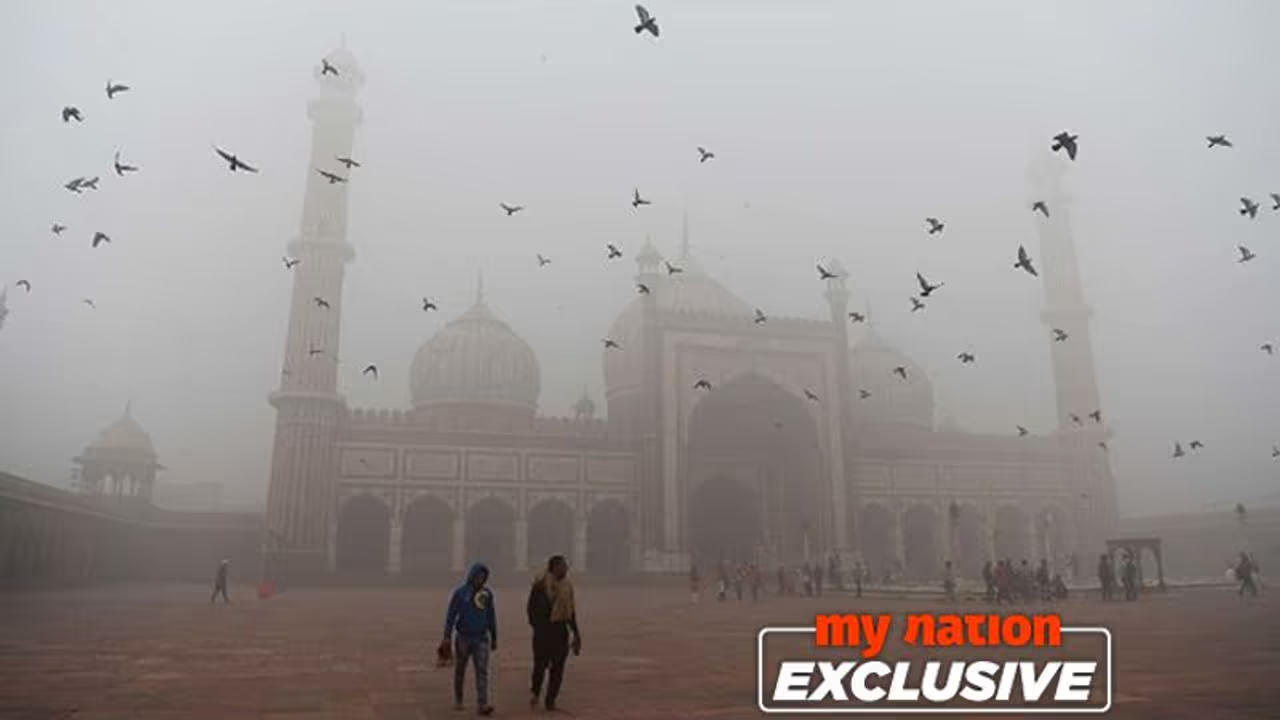As the latest Air Quality Index (AQI) betrays, Delhi is breathing a “very unhealthy” air at an alarming level of 279 points on the air quality parameters. The PM 10 level (presence in the air of particles with a diameter of less than 10 micrometres) in Delhi stood at 999 and the PM2.5 level was recorded at 638, according to aqicn.org.
New Delhi: As Delhi becomes colder by the day, pollution in the Capital is on the rise. Masks can no more mask the murky malaises this pollution is spinning off. Latest cases show, pollution is giving Delhiites heart troubles and spiking blood pressure levels, apart from choking lungs.
Other than severe respiratory problems, Delhiites are now at a higher risk of suffering from cardiovascular diseases. All thanks to the thick shroud of pollution blanketing the city.
As the latest Air Quality Index (AQI) betrays, Delhi is breathing a “very unhealthy” air at an alarming level of 279 points on the air quality parameters. The PM 10 level (presence in the air of particles with a diameter of less than 10 micrometres) in Delhi stood at 999 and the PM2.5 level was recorded at 638, according to aqicn.org.

In an exclusive interview with MyNation, heart expert Dr Ambuj Roy of the All India Institutes of Medical Sciences (AIIMS), said, “Pollution precipitates a lot of cardiovascular diseases, such as heart attacks and strokes, and raised blood pressure. Though, it is not a one-to-one correlation, but it has been witnessed that people living in places with high air pollution show greater chances of suffering from a heart attack and increased admission to hospitals for respiratory conditions.”
Also read: On National Pollution Control Day, Delhi continues to fight apocalyptic air
Prateek Suri, a patient who is suffering from premature heartbeats said, “I was in office when I blacked out and collapsed. Initially, I thought it was because of stress, but when I was taken to the hospital, I learnt that I developed premature heartbeats and low blood pressure. I had to stay in the ICU for one night for monitoring. My heart beats even went down to 32 beats a minute.
“It was only after running from doctors to doctors, I learnt that it has nothing to do with my lifestyle or any other factor, but it was triggered by pollution. I work as a journalist and I have to stay outdoors for shoots and travel by two-wheelers very often. My coughs still persist, even after two months.”
Dr Roy, professor of cardiology at AIIMS, added that pollution definitely raised blood pressure. “Now-a-days hospitals are receiving patients who had earlier controlled blood pressure, but now their blood pressure shows out-of-the acceptable range spike. However, winter also raises blood pressure and it is difficult to tease out the two. These patients now have to rely on extra medicine to control their blood pressure,” Roy said.
Also read: Delhi pollution: Breathing in capital is same as smoking pack of cigarettes, say experts
The doctor urged people to avoid exercising outdoors on days that the pollution was high. People can use air purifiers indoors, but that is not a definitive solution. Roy also advised people who are prone to cardiovascular diseases or have underlying heart diseases or are at high risk owing to factors such as diabetes and hypertension, to be careful in Delhi and the surrounding NCR.
Meanwhile, researchers from the London School of Hygiene and Tropical Medicine found that air pollution, more specifically short-term exposure to small particulate matter, has a direct link with an increase in the risk of developing an irregular heartbeat and blood clots in the lung.
But, no evidence of a clear and direct link between air pollution and increased risk of heart attack or stroke, was established by the research.
